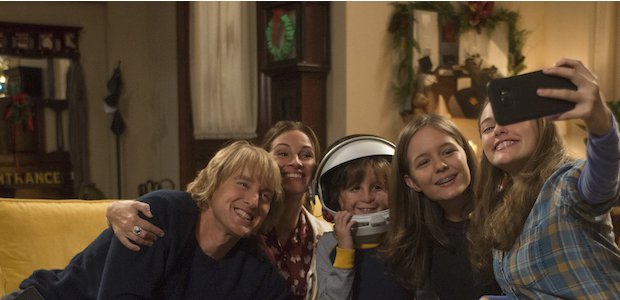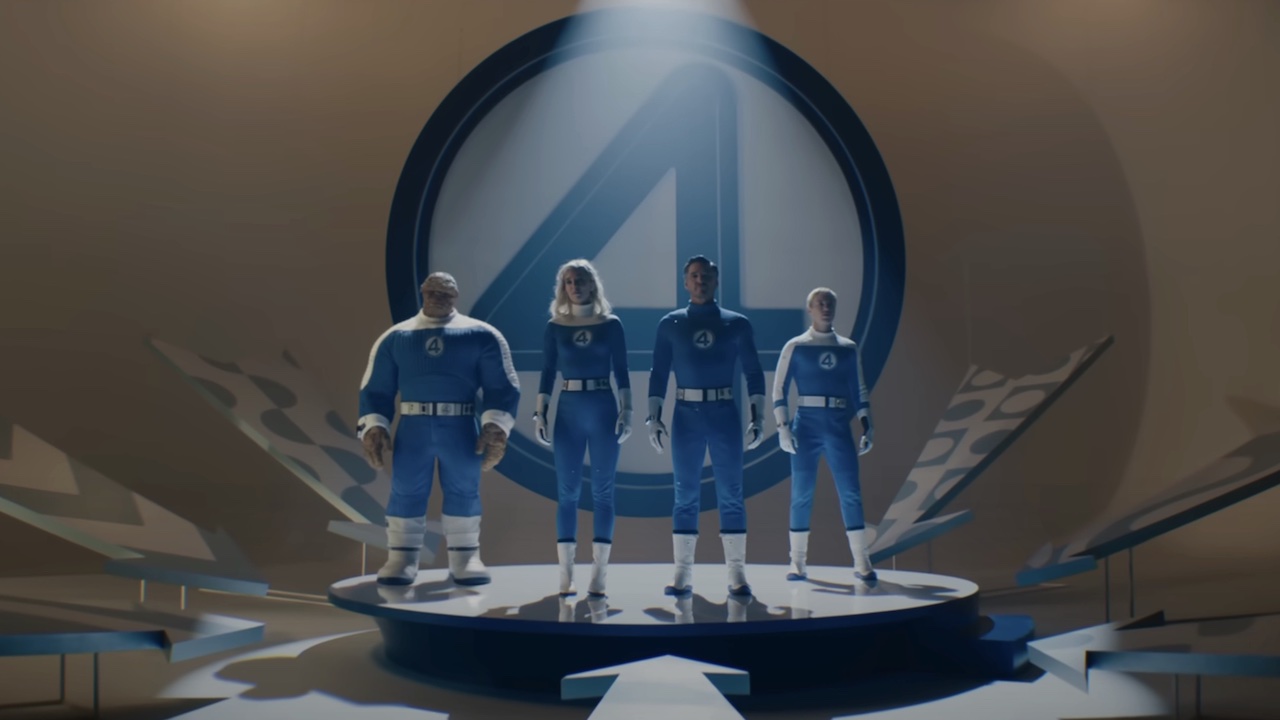It's an amazing experience to feel emotionally affected by a piece of cinema, but far more important is the authenticity of those emotions. There are particular buttons that filmmakers can always press to wring a few tears out of an audience, like the death or departure of a beloved pet or loved one, but the experience is made hollow and just feels like manipulation if it isn't backed up by anything substantive. From an outside perspective, it may seem like this is the foundation that writer/director Stephen Chbosky's Wonder is built upon, as the premise alone makes it look like it is begging for waterworks -- but the reality is that it's an impressively beautiful drama that's filled with miles of heart, some fantastic performances, and an incredibly earnest message that is really necessary for our world right now.
Adapted from the best-selling book by author R.J. Palacio, Wonder tells the remarkable story of August 'Auggie' Pullman (Jacob Tremblay) -- a young boy with a loving family who was born with a facial deformity that makes him look different than most kids. The summer before he is to enter fifth grade, his parents (Julia Roberts, Owen Wilson) decide that it is time for him to join a public school, which is an utterly terrifying prospect for a kid who prefers to spend time hidden from the world wearing an astronaut helmet with a dark visor.
The narrative tracks Auggie's first year in the new school -- exploring the incredible ups and downs that come with the experience of being young and looking different than everyone around you. It's a story told from multiple angles, allowing the audience to see the world from the varying perspectives of the movie's principal characters, and within each new viewpoint discovers something important and meaningful that successfully changes the way you think about everyone's particular situation.
Wonder's story packs a significant natural emotional weight, but what lets it work is an impressive sense of tone that prevents the material from ever feeling overwhelming. An important part of that is simply the characterization of Auggie, who is really just a remarkable human being. While he certainly gets handed his fair share of gut punches and is forced to shed more than a few tears, he is also a sweet and normal kid who loves Star Wars and expresses a wonderful sense of self-deprecation -- opening the movie by referring in voice over to his birth as a joke, with his deformity being the punchline. Overall, it's a film that's very much aware that it is going to make you cry, but offers plenty of comforting humor and lightness to even the keel and further connect you to the material.
Jacob Tremblay, of course, first caught our attention in a major way with his breathtaking performance in Lenny Abrahamson's 2015 drama Room, but Wonder affirms that turn was no mere fluke. The new movie provides the extra challenge of having the young actor work and properly emote through some impressive and transformative makeup, but it truly only heightens his work, allowing him to fully disappear into the part. More importantly, there is never an inauthentic moment, as Tremblay legitimately seems to understand the gravity of the role and the experience of his character. The movie ultimately hinges on him, but also soars as a result.
Not to be ignored is the impressive supporting cast assembled -- which Wonder never forgets about and utilizes creatively within its multi-perspective driven narrative. While carrying different energies, Julia Roberts and Owen Wilson share fantastic chemistry as Auggie's stressed but attentive and caring parents, while Mandy Patinkin and Daveed Diggs deliver inspirational turns as educators Mr. Tushman and Mr. Browne, respectively. Also deserving special mention are both Izabela Vidovic and Noah Jupe, who play Auggie's sister, Via, and best friend, Jack Will. While their stories certainly do extend from Auggie's (the world "revolves around the son," as Via puts it), they also have their own individual emotional arcs that are very much powerful and complete in their own right. They never feel like a distraction -- only enhancing elements to the larger story being told.
Before the credits roll on Wonder, your cheeks will be wet and your vision a touch blurred -- but you will be smiling all the same. As noted at the top, it's an amazing experience to feel emotionally affected by a piece of cinema, and Stephen Chbosky's movie delivers a fantastic wallop paired with a necessary and well-delivered message about bravery in the face of fear, and the vitality of acceptance.

Eric Eisenberg is the Assistant Managing Editor at CinemaBlend. After graduating Boston University and earning a bachelor’s degree in journalism, he took a part-time job as a staff writer for CinemaBlend, and after six months was offered the opportunity to move to Los Angeles and take on a newly created West Coast Editor position. Over a decade later, he's continuing to advance his interests and expertise. In addition to conducting filmmaker interviews and contributing to the news and feature content of the site, Eric also oversees the Movie Reviews section, writes the the weekend box office report (published Sundays), and is the site's resident Stephen King expert. He has two King-related columns.
The No. 1 Challenge Fantastic Four: First Steps Faced Is Not What I Expected, But Makes Sense
Black Mirror's USS Callister Sequel Was Less Star Trek Than I Hoped, But There Are Two Big Connections Fans Will Appreciate
How To Watch The Last Of Us Season 2 Online And Stream Every Episode Of The Award-Winning HBO Series From Anywhere











